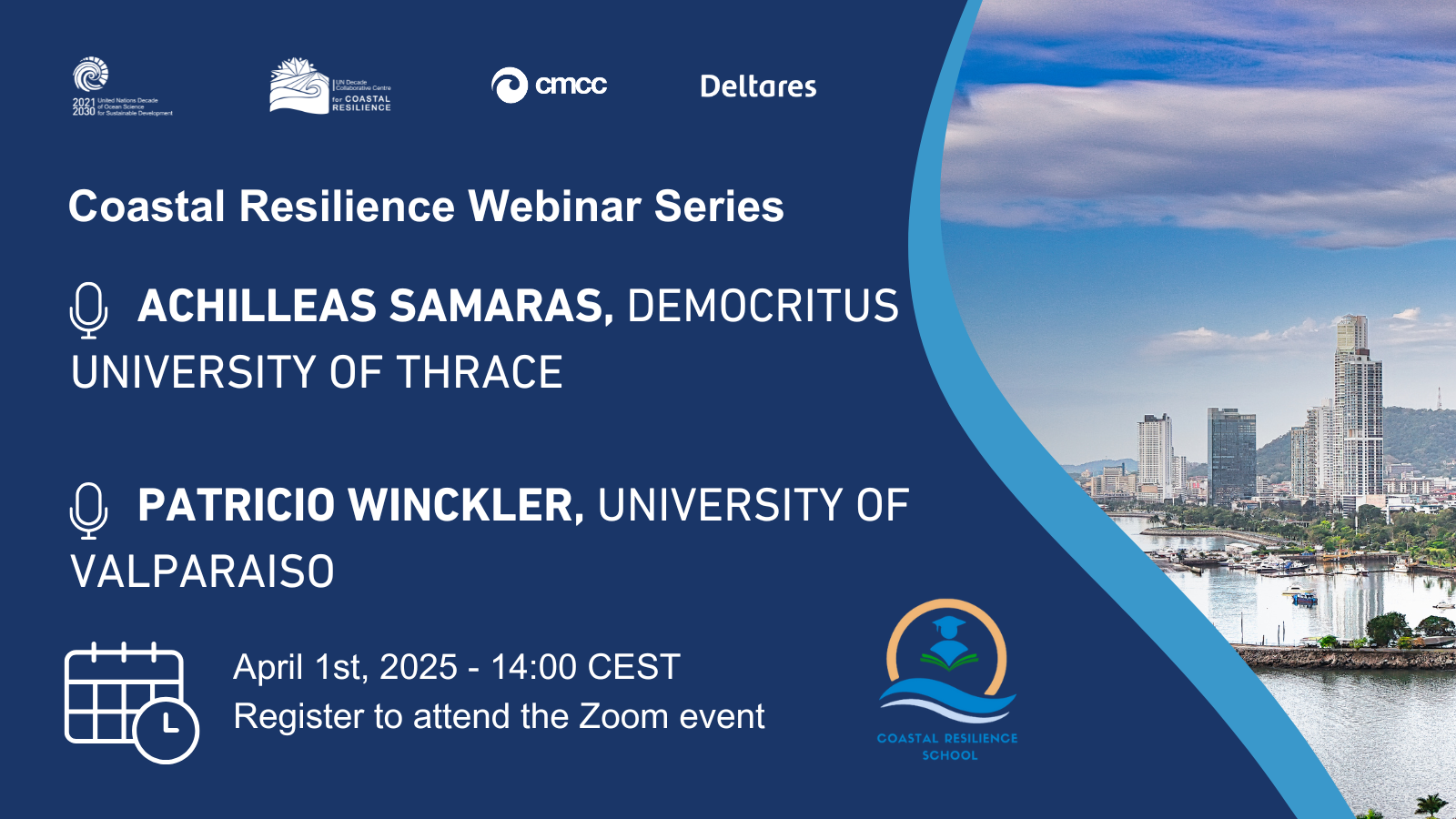Coastal Resilience Webinar Series
1 April 2025, 14:00 CEST
To join the webinar, register here

The Coastal Resilience webinar series, a joint initiative by DCC-CR, CMCC, and Deltares, continues.
The path towards coastal resilience through integrated modelling approaches: The case of Watershed-Coast Systems
Speaker: Achilleas Samaras, Democritus University of Thrace
Building coastal resilience is an iterative process that requires bold steps to translate advances in scientific knowledge into policy and practice. The climate crisis and its observed impacts highlight the urgent need for action towards this direction, in order to mitigate and adapt to climate change in view of a dire future. These objectives are unlikely to be achieved without a pragmatic approach that prioritizes real-life applicability – a goal attainable only through integrated modelling systems.
The webinar will focus on Watershed-Coast Systems (i.e. entities consisting of watersheds and the coastal areas adjacent to their outlets), examining their dynamics through the lens of a spatiotemporal continuum. In this context, the webinar will: (a) outline a methodological framework for adapting integrated modelling approaches for management and engineering purposes, (b) systematise how various tools (data, methods, models, etc.) and concepts can be leveraged for informed decision-making towards resilient systems in a changing climate, and (c) highlight key considerations for bridging the gaps between science, society and governance.
Coastal engineering on tectonically active coasts. Hazards, impacts and adaptation
Speaker: Patricio Winckler, University of Valparaiso
The Pacific coasts of South America are subjected to a complex spectrum of anthropogenic, geophysical and climate-driven perturbations. The territory is characterized by strong latitudinal gradients, with a climate ranging from the most arid region worldwide (18°S) to the rainforests of Patagonia (55°S). Its coastline, shaped by the tectonically active Peru-Chile trench, is formed by both a heterogeneous coastline facing the narrowest continental shelf worldwide and an extensive fjord region. The relatively frequent occurrence of large earthquakes and tsunamis, along with the steadily increasing sea level rise and highly energetic coastal storms, provide unique conditions to investigate impacts on human and natural systems from a multi-hazard perspective. Relative mean sea level trends are spatially heterogeneous and shaped by the seafloor deformation during earthquakes, which is comparable in magnitude to centuries of climate-driven sea-level rise. In the last decades, coastal storms have increased in frequency and intensity, explaining the erosion of ~80% of the beaches and augmenting operational shutdowns of major ports in the country. Recent studies show these trends will be enhanced during the XXI century, calling for an urgent need to strengthen the implementation of adaptation actions, several of which will be analyzed in the talk.
HOW TO PARTICIPATE
1 April 2025, 14:00 CEST
To join the webinar, register here
ORGANIZED BY:
DCC-CR, CMCC, Deltares
The Foundation CMCC and the DCC-CR act as joint controllers of the processing of personal data. The respective references for matters relating to this and the exercise of the rights indicated in the information pursuant to art. 13 are [email protected] and [email protected] respectively
Information on the processing of personal data for registration for the Foundation’s webinars

